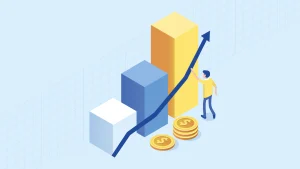Retirement is no longer just the end of a career—it’s becoming a personal journey shaped by longer lives, changing goals, and digital innovation. Instead of being seen as a distant destination, it now invites active decisions long before the final day at work. This shift, driven by what we call the retirement evolution, reflects how people are rethinking what it means to age, prepare and live well.
In Brazil, this transformation is gaining momentum. Thanks to new technologies, financial planning is becoming simpler, more personalised, and more accessible. The retirement evolution is showing that planning for the future doesn’t have to be complicated—it can be guided by intuitive tools, helpful insights and flexible solutions that speak to real-life goals and rhythms.
The changing meaning of retirement

Retirement is no longer viewed as a moment to stop living actively. Instead, it’s seen as a phase for reinventing routines, exploring passions, or even continuing to work on one’s own terms. As people live longer and healthier lives, they’re also questioning traditional expectations around ageing.
This redefinition is at the heart of the retirement evolution. It encourages planning not as an obligation, but as a way to give shape to dreams. People in Brazil are starting to explore more than just public pensions—looking into private plans, savings strategies and long-term investments that align with their lifestyles.
Technology and financial autonomy
Technology has become a great ally in helping people take control of their financial futures. With just a smartphone, users can now simulate retirement income, track their goals, and understand how today’s choices will shape tomorrow. These tools are making financial planning less abstract—and more part of everyday life.
This is a key component of the retirement evolution. Artificial intelligence and data analysis are no longer exclusive to specialists—they’re available in friendly apps that guide users step by step. By breaking down complex information, technology helps people feel confident and informed when making decisions about their future.
Digital platforms and personalised planning
In Brazil, retirement planning platforms are becoming easier to use and more tailored to each person’s profile. Through simple questions and data inputs, users receive suggestions that reflect their income, savings potential, and ideal retirement age—all presented in clear, visual formats.
This level of personalisation is central to the retirement evolution. It transforms retirement from a distant concern into something real and manageable. When people can see their progress and make small adjustments over time, the planning process becomes more natural and engaging.
Inclusion through mobile access
Digital tools are also breaking down barriers. In a country where many still lack access to traditional banking, mobile-first apps open doors to financial planning. Informal workers, freelancers and self-employed individuals can now simulate retirement scenarios based on their own income patterns.
This makes the retirement evolution more inclusive. It recognises that people’s realities differ and creates space for those often left out of the conversation. Inclusion isn’t just a side benefit—it’s becoming a foundation of how financial futures are built in Brazil.
The role of education and transparency
Understanding how money grows, how time affects savings, and how to build financial security shouldn’t be reserved for specialists. Today, digital content—through videos, blogs, and apps—is helping to explain retirement concepts in ways that are easy to grasp.
This educational wave is part of the retirement evolution. The more people understand, the more they engage. Concepts like inflation, interest rates and risk become tools for empowerment, not confusion. With clearer information, planning for retirement becomes less intimidating and more actionable.
Shifting from passive to active planning
For a long time, retirement was something people hoped would work out, relying mostly on government support or employer pensions. But that passive approach is fading. More people now want to choose how they save, where they invest, and what kind of lifestyle they want later on.
This change in attitude is a strong sign of the retirement evolution. People are no longer waiting for the system to decide for them—they’re making informed choices and shaping their own futures. This brings a sense of ownership and freedom that redefines how retirement is approached.
The impact of open data and regulation
Brazil’s open finance movement is helping people see all their financial information in one place. With permission, apps can connect accounts and show a full financial picture, helping users make better long-term decisions.
This integration supports the retirement evolution by giving people clarity. Instead of jumping between bank statements or relying on memory, users can view their financial health in real time. Regulation plays an important role here, ensuring that data sharing is secure, transparent, and always under user control.
Challenges and opportunities ahead
Even with all these advances, challenges remain. Some Brazilians still lack reliable internet, digital tools, or trust in financial systems. For the retirement evolution to truly reach everyone, accessibility and confidence must be nurtured through education, outreach and user-friendly platforms.
At the same time, there’s great opportunity. Fintechs and digital educators are reaching more people than ever, helping them start early and stay consistent. New models of retirement are also emerging—combining flexible work, passive income and early planning into strategies that reflect today’s realities.
Intergenerational shifts and new expectations
Younger generations don’t see retirement the same way their parents did. They want more freedom, more flexibility, and more purpose in how they live—and that includes the way they plan financially. Movements like FIRE (Financial Independence, Retire Early) reflect this cultural shift.
This mindset fuels the retirement evolution. Retirement isn’t just a final chapter; it’s part of a broader life design. Institutions and planners need to listen to this generation’s expectations and adapt services to offer agility, autonomy and meaning—not just numbers.
Future outlook for Brazil
Brazil is well positioned to lead this new phase. It has a young population, a booming fintech ecosystem and regulation that encourages innovation. With the right support, the country can build a retirement culture that’s digital, inclusive and sustainable.
The retirement evolution invites collaboration. Governments, companies and individuals all have a role in shaping a future where people retire with dignity, confidence and options. Retirement doesn’t have to be a mystery or a fear—it can be something people prepare for with knowledge, tools and optimism.



